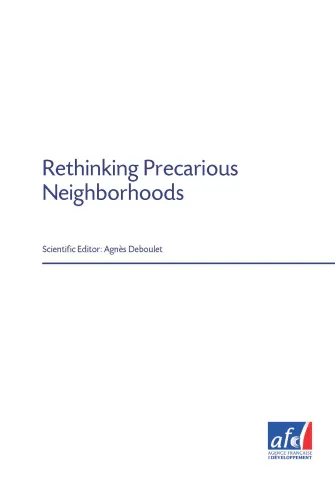Share the page
Rethinking Precarious Neighborhoods
Published on

On the occasion of the United Nations Habitat III Conference on cities, to take place in Quito (Ecuador) in October 2016, this research publication proposes an innovative reflection on precarious neighborhoods - whose populations are set to double over the next twenty years. Building on extensive field research across all continents, the different contributions show that these precarious neighborhoods suffer above all else from a negative vision that poses an obstacle to grasping their diversity and understanding their singularities. Yet, these neighborhoods are home to ordinary citizens who work, move around the city, and build their dwellings with no financial support from public authorities. Since the 1960s, researchers have been deconstructing the accepted ideas about such precarious neighborhoods and showing how a policy based on the ideals of justice could be envisioned, by challenging traditional programs aimed at clearance, rehousing, rehabilitation... Rethinking precarious neighborhoods also means that it is important to develop an ambition for knowledge - in depth - of these neighborhoods, linked to a policy for recognition, beyond the technical categories of rehabilitation or the formal categories of citizenship.
Useful Information
-
Authors
-
Agnès DEBOULET (direction scientifique)
-
Coordinators
-
Edition
-
13
-
Number of pages
-
276
-
ISSN
-
2492-8313
-
Collection
-
AFD Studies
-
Other languages
